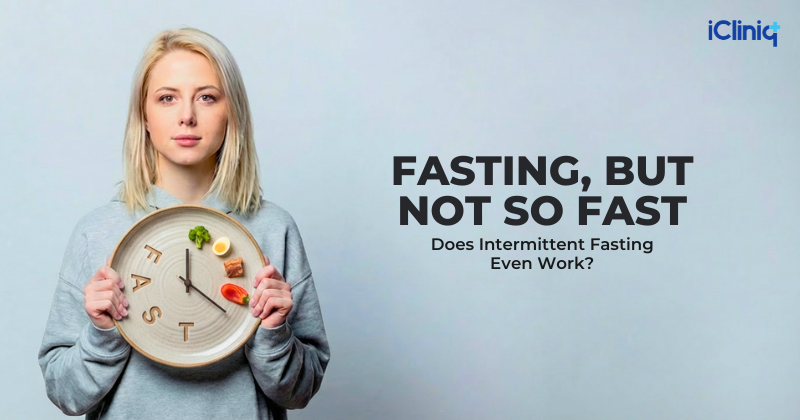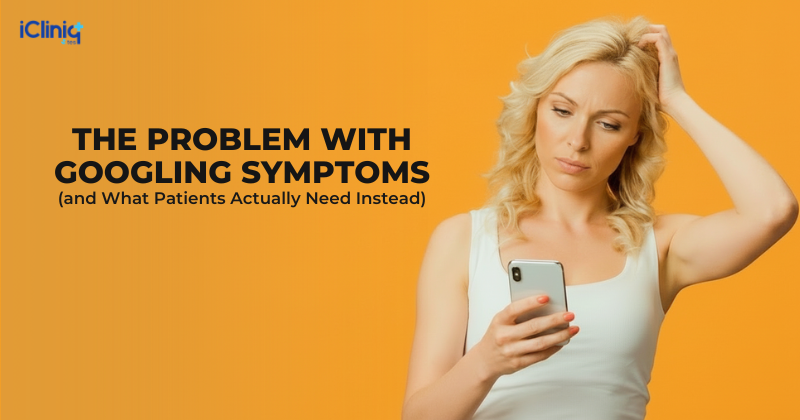Key Findings
- As the Trump administration attempts to overhaul many government health agencies, the latest KFF Tracking Poll on Health Information and Trust finds that partisans’ trust in these agencies as sources of reliable vaccine information has shifted from where it stood under the Biden administration with trust declining among Democrats and rising among Republicans. While Democrats remain more likely than Republicans to trust the U.S. Centers for Disease Control and Prevention (CDC) and U.S. Food and Drug Administration (FDA), the share of Republicans who have a “great deal” or “fair amount” of trust in these agencies to provide vaccine information has increased by about 10 percentage points from 2023. Concurrently, trust in these agencies as reliable sources of vaccine information has fallen among Democrats by double digits, including for the CDC (70% now v. 88% in 2023) and the FDA (67% v. 86%).
- Less than half of the public express confidence in government health agencies like the CDC and FDA to carry out many of their core responsibilities, including just three in ten (32%) who have confidence in them to act independently without interference from outside interests. Six in ten adults — including three in four Democrats and nearly half of Republicans — say these agencies are not paying enough attention to science when it comes to making decisions and recommendations about vaccines. In addition, at least three in ten say these agencies are paying “too much attention” to the beliefs of officials running the agencies (34%) and the interests of pharmaceutical companies (30%) when making vaccine-related decisions.
- Most adults say they are at least “somewhat confident” in the safety of many routine vaccines, including those for measles (83%), the flu (74%), and — among adults ages 50 and older for whom these vaccines are recommended — pneumonia (82%) and shingles (79%). The public, however, remains less confident in the safety of the COVID-19 vaccine amid continued partisan disagreement. Just over half (56%) of adults say they are at least “somewhat confident” that the COVID-19 vaccines are safe, including nearly nine in ten Democrats (87%), about half of independents (55%), but just three in ten Republicans.
- With the public split in their confidence of the safety of COVID-19 vaccines, the oft-politicized mRNA technology that many of these vaccines rely on remains obscure to much of the public. About twice as many adults think vaccines that use mRNA technology are “generally safe” (32%) as say they are “generally unsafe” (16%), but about half (52%) report not knowing enough about this technology to say. In addition, nearly half of the public (45%) report having heard the false claim that mRNA vaccines can alter a person’s DNA – a myth related to COVID-19 vaccines that began circulating early in the pandemic. While just 3% think this claim is “definitely true,” most are uncertain, saying it is either “probably true” (26%) or “probably false” (45%). However, there are important differences by party identification and ethnicity when it comes to believing or leaning toward believing the myth that mRNA vaccines alter DNA, with at least one-third of Republicans (37%), independents (33%), and Hispanic adults (38%) saying the claim is either “definitely true” or “probably true.”
Partisan Trust in Government Health Agencies and Officials as Reliable Sources of Vaccine Information
The latest Tracking Poll on Health Information and Trust finds that partisan trust in government health agencies on vaccines has shifted notably since the Biden administration, with trust declining among Democrats and rising among Republicans.
Overall, doctors remain the most trusted source of reliable vaccine information among the public with eight in ten adults (83%) saying they trust their doctor or health care provider a “great deal” or “fair amount” to provide reliable information about vaccines and a similar share (81%) of parents saying they trust their child’s pediatrician. Smaller shares of the public, but still a majority, say they trust government health agencies, including their local public health department (66%), the U.S. Centers for Disease Control and Prevention, or CDC (59%), or the U.S. Food and Drug Administration, or FDA (57%) to provide reliable information about vaccines. About half of the public (51%) say they trust pharmaceutical companies at least a “fair amount” as source of reliable vaccine information. Fewer than half of adults – or about four in ten – say they trust Health and Human Services Secretary Robert F. Kennedy Jr. (41%) or President Trump (37%) to provide reliable information about vaccines.
The share of adults who say they have a “great deal” or “fair amount” of trust in the CDC and the FDA to provide reliable information about vaccines is similar to the share who said so in September 2023. However, this apparent stability masks some notable shifts in partisan trust amid a change in leadership at these agencies. Fewer Democrats – though still a majority — now say they have a “great deal” or “fair amount” of trust in the CDC (70% now v. 88% in 2023) and the FDA (67% v. 86%) to provide reliable information on vaccines. Conversely, the share of Republicans who express trust in these agencies has risen by about ten percentage points, with about half of Republicans now saying they trust the CDC (51% now up from 40% in 2023) and the FDA (52% v. 42%) to provide information on vaccines.
While Democrats are still more likely than Republicans to trust either the CDC or FDA as a source of vaccine information, the shifts in trust mark a notable reversal in partisan trends first observed during the start of the COVID-19 pandemic. In 2022, KFF tracking polls showed declining trust in government health agencies to provide information about COVID-19 vaccines – a change largely driven by declining trust among Republicans alongside consistently higher levels of trust among Democrats. More recent KFF polling has shown declining trust in government agencies to provide health information in general among the public, with trust declining among both Democrats and Republicans in some cases. The most recent uptick among Republicans and decline among Democrats in trust of the CDC and FDA may be a reflection of polarized views on the Trump administration’s efforts to overhaul government health agencies and shift vaccine policy and messaging, including the way vaccines are tested.
While individual doctors garner the highest shares of trust across partisan groups, there are partisan gaps in trust in nearly all sources of vaccine information. At least eight in ten Democrats, independents and Republicans say they trust their own doctor or health care provider “a great deal” or “fair amount” to provide reliable information about vaccines; however, Democrats are more likely than Republicans to say this (93% v. 78%). Similarly, while majorities of parents regardless of partisanship trust their child’s pediatrician at least a fair amount to provide reliable vaccine information, Democratic parents are more likely than Republican parents to say so (91% v. 73%). Notably, about one in four (27%) Republican parents say they trust their child’s pediatrician “not much” or “not at all” to provide reliable information about vaccines.
Beyond the CDC and FDA, there are additional divides in trust between Democrats and Republicans on the share who trust their local public health department (83% of Democrats v. 51% of Republicans), pharmaceutical companies (69% v. 39%), and among parents, their child’s school or day care (71% v. 33%). These partisan divides in trust are consistent with findings from previous KFF polling.
Republicans are much more likely than both independents and Democrats to say they trust President Trump and Health and Human Services Secretary Robert F. Kennedy Jr. as reliable sources of vaccine information. Three quarters of Republicans say they have a “great deal” or “fair amount” of trust in President Trump (74%) and Robert F. Kennedy Jr. (73%) to provide reliable information about vaccines. This is considerably larger than the share of independents and Democrats who say they trust either as reliable sources of vaccine information: 30% of independents and 10% of Democrats say they trust President Trump, while 35% of independents and 16% of Democrats say they trust Secretary Kennedy.
Notably, Republicans are as likely to say they trust President Trump and Secretary Kennedy as they are to say they trust their own doctor as a source of reliable vaccine information.
Confidence in Federal Government Health Agencies To Carry Out Responsibilities
Even as majorities of the public express trust in government health agencies to provide information on vaccines, less than half of the public express at least some confidence in agencies like the CDC and FDA to carry out many of their responsibilities, such as ensuring the safety and effectiveness of prescription drugs (46%) or to ensure the safety and effectiveness of vaccines approved for use in the U.S. (45%). About four in ten (42%) have confidence in government health agencies to respond to outbreaks of infectious diseases. Even fewer, or one-third (32%), express at least “some” confidence in government health agencies to act independently without interference from outside interests. Fewer than one in five adults say they have “a lot” of trust in these agencies to fulfill each of these tasks.
Less than half of Democrats, independents, and Republicans have at least “some” confidence in government health agencies to ensure the safety of prescription drugs, respond to infectious disease outbreaks, or act independently without outside interference. Democrats, however, are more likely than Republicans to say they have “some” trust in government health agencies to ensure the safety and effectiveness of vaccines (52% v. 43%). However, similar shares of Democrats and Republicans express confidence in these agencies to ensure the safety of prescription drugs, respond to infectious disease outbreaks, or act independently.
One reason behind a lack of confidence in government health agencies may be that most of the public, including larger shares of Democrats, say that under the Trump administration, government health agencies like the CDC and FDA are not paying enough attention to science when making decisions about vaccines. Six in ten adults say these agencies are not paying enough attention to science when making decisions about vaccines, while one-third say they are paying “about the right amount of attention” (34%) and fewer than one in ten say they pay “too much attention” to science (6%). The share of adults who now say government health agencies are not paying enough attention to science when making decisions about vaccines is higher than the share who expressed similar sentiments in September 2020, when just under half of adults said that under the Trump administration, the CDC and FDA were not paying enough attention to science when reviewing and approving treatments for coronavirus.
Health and Human Services Secretary Robert F. Kennedy Jr. has raised question about pharmaceutical companies’ influence and conflicts of interest within government health agencies, while Kennedy himself has faced criticisms over how his own views on vaccines might influence government policy. The public is split over whether government health agencies are paying the right amount of attention to pharmaceutical companies or the beliefs of officials running the agencies when making decisions about vaccines. Three in ten adults say government health agencies are paying “too much attention” to the interests of pharmaceutical companies and similar shares say they are paying “about the right amount of attention,” while four in ten say they are paying “not enough attention.” Adults are similarly divided over whether government health agencies are paying the right amount of attention to the beliefs of officials running these agencies, with similar shares saying they’re either paying “too much attention” (34%), “not enough attention” (36%) or “about the right amount of attention” (29%) when it comes to making decisions or recommendations about vaccines.
Democrats are much more likely than Republicans to say government health agencies like the CDC and FDA are not paying enough attention to science when making decisions about vaccines (73% v. 45%). On the other hand, Republicans are more than twice as likely as Democrats to say government health agencies are paying about the “right amount of attention” to the beliefs of officials running these agencies (45% v. 19%).
Confidence in Vaccine Safety and Views of mRNA Vaccines
A majority of the public continues to express confidence in the safety of most routine vaccines; however, nearly four years since they were first approved for use, views on the COVID-19 vaccines remain divisive and largely partisan, consistent with prior KFF polling.
At least three in four adults, including majorities across partisans, say they are either “very confident” or “somewhat confident” that vaccines for measles, mumps, rubella (83%) or the flu (74%) are safe. Among adults ages 50 and older – for whom the CDC currently recommends both the pneumonia and shingles vaccines – eight in ten say they think vaccines for pneumonia (82%) or shingles (79%) are safe, including majorities across partisans.
However, confidence in the safety of the COVID-19 vaccine is much lower than these other routine vaccines. About half (56%) of adults say they are at least “somewhat confident” that the COVID-19 vaccines are safe, including nine in ten (87%) Democrats compared to just three in ten Republicans. The share of the public and partisans who express confidence in the safety in the flu and COVID-19 vaccines has not changed notably since September 2023. For more information on the public’s views on measles and the MMR vaccines, see KFF’s prior release from the April Tracking Poll on Health Information and Trust.
Many of the COVID-19 vaccines – including other vaccines under development for diseases including cancer – rely on a vaccine technology known as messenger-RNA (mRNA). COVID-19 vaccines that use mRNA technology have been proven safe and effective but have long been the subject of misinformation and recently come under attack, with Republican legislators in some states recently attempting to ban or limit the use of mRNA vaccines and the National Institutes of Health (NIH) reportedly urging scientists to remove references to the technology from their grant applications.
The latest poll finds that while few adults think mRNA vaccines are unsafe, many say they don’t know enough about the technology to have an opinion. Overall, one-third (32%) of adults say vaccines that use mRNA technology are “generally safe” compared to about one in six (16%) who say they are “generally unsafe.” But at the same time, about half of the public (52%) say they do not know enough about this technology to say. At least one in five Republicans (23%) and independents (18%) say they think mRNA vaccines are “generally unsafe” compared to far fewer Democrats (3%), but still, most Republicans (61%) and roughly half of independents and Democrats say they do not know enough to say whether mRNA vaccines are safe or not.
Large shares of the public report having heard the false claim that mRNA vaccines alter your DNA – a persistent myth that began circulating early on during the COVID-19 pandemic — and while few think this is definitely true, most are uncertain. Exposure to and uncertainty surrounding this false claim has existed since early on in the COVID-19 pandemic, when KFF polling found that about one in five adults who had heard the claim believed or were unsure whether COVID-19 vaccines could change your DNA.
About half of the public (45%) say they have read or heard the false claim that mRNA vaccines can change your DNA, including about half of Republicans (48%) and independents (47%) and four in ten Democrats (38%). Exposure to the false claim also differs across race and ethnicity. About half (51%) of White adults say they have heard the myth that mRNA vaccines can alter DNA compared to fewer Hispanic adults (35%) and Black adults (27%).
With about half the public saying they have heard the myth that mRNA vaccines alter your DNA, just 3% of all adults say they think this claim is “definitely true,” and a quarter (24%) say it is “definitely false.” However, as previous KFF polling has found on a wide array of misinformation topics, most adults express uncertainty and fall in the “malleable middle” with seven in ten saying it is either “probably true” (26%) or “probably false” (45%) including majorities of Republicans and independents, and about half of Democrats.
While at least four in ten across party and race and ethnicity say they think this false claim is “probably false,” larger shares of Republicans, independents, and Hispanic adults believe or lean toward believing it, saying it is “probably true” or “definitely true.” Overall, three in ten adults say it is “definitely” or “probably true” that mRNA vaccines can change your DNA, but this increases to 37% of Republicans and one in three independents (compared to 13% of Democrats). About four in ten (38%) Hispanic adults believe or lean toward believing the myth that mRNA technology alters DNA, compared to about a quarter of White adults (28%) and Black adults (26%).
Believing or leaning toward believing the myth that mRNA vaccines can alter your DNA is tied to negative perceptions of the COVID-19 vaccines’ safety. Among those who say it is “definitely true” or “probably true” that mRNA vaccines change your DNA, a large majority (77%) say they are not confident that the COVID-19 vaccines are safe, including half (51%) who say they are “not at all confident.” While the vast majority of those who say it is “definitely false” that mRNA vaccines alter DNA in turn express confidence in the safety of the COVID-19 vaccines (86%), confidence drops among those who lean toward thinking this is false, with just six in ten (63%) of those who say this myth is “probably false” expressing confidence in the COVID-19 vaccine’s safety.
Publisher: Source link









